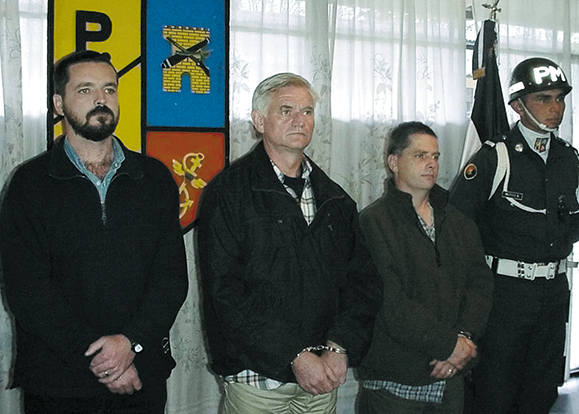Sinn Féin has come in for scathing criticism in the past weeks, with many blaming the party for the deadlock in the peace renegotiations, after the Stormont Assembly was suspended at the beginning of August by Secretary of State for Northern Ireland John Reid to allow a six-week break during which the parties could return to the drawing board.
A Unionist rejection of decommissioning proposals by the IRA lead to that group removing its “historic” offer and to the collapse of the latest round of negotiations.
The details of the IRA offer to the International Commission on Decommissioning were not publicized, but it is believed that decommissioning was to occur in tandem with a withdrawal of British military bases from sensitive areas, the implementation of the Patton Report on the RUC (Police) and the ending of the Diplock court system, where trials are held without a jury.
The Commission expressed its positive appraisal for the prospects of putting guns beyond use. The IRA move, described as an “historic breakthrough,” and hailed by the British and Irish governments, was rejected by Ulster Unionist David Trimble, who said it did not go far enough. Trimble demanded an actual date for the beginning of decommissioning.
When the Assembly was later suspended by Dr. John Reid, the IRA withdrew its offer to decommission.
Sinn Féin came under further fire from all the main Irish political parties and from the U.S. government following the arrest of three suspected IRA members in the Columbian capital, Bogota. The party was asked to explain its links, if any, to the three men, alleged to have offered explosives training to drug-financed Columbian terrorists.
Fianna Fail, Fine Gael and Labour united to demand an explanation from Sinn Féin, which has denied connections with the three men. The men were not formally charged following their arrest by the Columbian military when they returned to Bogota after traveling to a demilitarized area in southeastern Columbia, which the government ceded to the Revolutionary Armed Forces of Columbia (FARC), the country’s largest guerilla group, over two years ago.
The three men who were arrested were named as James Monaghan from Donegal, Martin McCauley, from Lurgan, Co Armagh who lived in Kildare, and John Connolly, from Dublin, who used the pseudonym David Bracken. They claimed they were simply tourists and had committed no crimes. They allegedly told prosecutors they were in the demilitarized zone to determine the status of peace negotiations between the government and the FARC guerillas. If, however, they are convicted of helping the FARC to make explosives, they face 20-year prison sentences. ♦


Leave a Reply